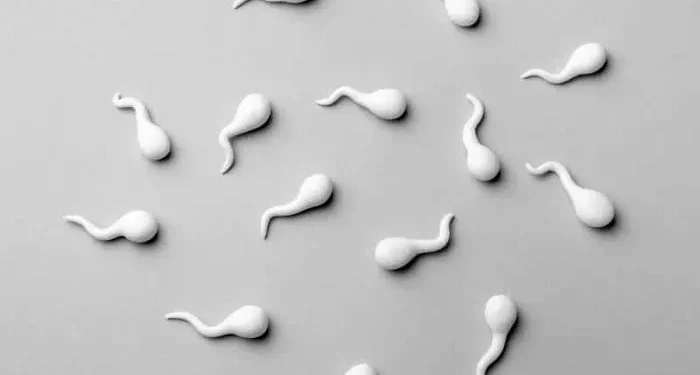Azoospermia, defined as the complete absence of sperm in the semen, is a significant cause of male infertility, affecting approximately 1% of the male population and accounting for 10-15% of male infertility cases. Unlike some medical conditions that have a clear age-related onset, azoospermia can manifest at any stage of a man’s life. This is because the underlying causes of azoospermia are varied and not directly linked to the aging process itself. Understanding the different types of azoospermia, their causes, and diagnostic methods is essential for addressing this condition effectively.
Types of Azoospermia
Azoospermia can be categorized into three main types: pretesticular, testicular, and post-testicular. Each type has distinct causes and implications for treatment, and importantly, each can occur at any age.
Pretesticular Azoospermia (Hormonal Issues)
Pretesticular azoospermia is related to issues outside the testes that affect sperm production, primarily involving hormonal imbalances. The hypothalamus and pituitary gland play crucial roles in regulating the hormones necessary for spermatogenesis. When these glands fail to produce sufficient levels of gonadotropins (LH and FSH), the testes do not receive the signals needed to produce sperm.
Testicular Azoospermia (Testicular Dysfunction)
Testicular azoospermia occurs when there is a problem within the testes themselves, preventing the production of sperm. This type of azoospermia can result from a variety of factors including genetic disorders, such as Klinefelter syndrome, physical damage from trauma or surgery, infections like mumps orchitis, and exposure to certain toxins.
Post-Testicular Azoospermia (Blockages)
Post-testicular azoospermia is caused by blockages or obstructions in the male reproductive tract that prevent sperm from being ejaculated. These blockages can occur in the epididymis, vas deferens, or ejaculatory ducts. Common causes include congenital defects, infections, surgical procedures like vasectomy, and inflammation.
Causes of Azoospermia
The causes of azoospermia are diverse and depend on the type. Each category of azoospermia has specific etiological factors that can impact men at any age.
Pretesticular Causes: Hormonal Imbalances, Medications, Genetic Conditions
Hormonal imbalances are a leading cause of pretesticular azoospermia. Conditions such as hypogonadotropic hypogonadism, where there is insufficient production of gonadotropins, can halt sperm production. Certain medications, including anabolic steroids and drugs used in chemotherapy, can disrupt hormone levels. Genetic conditions like Kallmann syndrome, which affects the production of gonadotropin-releasing hormone (GnRH), can also lead to this type of azoospermia.
Testicular Causes: Infections, Injuries, Genetic Conditions, Undescended Testicles
Testicular azoospermia can arise from infections that directly impact the testes, such as mumps orchitis, which can cause permanent damage to the seminiferous tubules. Injuries to the testes, whether from trauma or surgical procedures, can impair sperm production. Genetic conditions like Klinefelter syndrome, where men have an extra X chromosome, lead to underdeveloped testes and insufficient sperm production. Additionally, undescended testicles (cryptorchidism) can result in impaired spermatogenesis if not corrected early.
Post-Testicular Causes: Blockages Due to Infections, Surgery (Vasectomy), Anatomical Abnormalities
Blockages that lead to post-testicular azoospermia can be congenital, such as the absence of the vas deferens often seen in men with cystic fibrosis. Infections like epididymitis can cause scarring and blockages in the reproductive tract. Surgical procedures, particularly vasectomies, intentionally create blockages to prevent the release of sperm. Anatomical abnormalities, whether congenital or acquired, can also obstruct the normal passage of sperm.
See also: Does Masturbation Cause Infertility?
Diagnosis of Azoospermia
The primary diagnostic tool for azoospermia is semen analysis, which involves examining a man’s ejaculate under a microscope to determine the presence and concentration of sperm. When azoospermia is suspected, additional tests are often required to identify the underlying cause.
Semen Analysis
Semen analysis is the cornerstone of azoospermia diagnosis. This test assesses not only the presence of sperm but also other semen parameters such as volume, pH, and fructose levels. The absence of sperm in the ejaculate confirms azoospermia, but further evaluation is necessary to determine whether the azoospermia is obstructive (post-testicular) or non-obstructive (pretesticular or testicular).
Additional Diagnostic Tests
Depending on the suspected cause of azoospermia, various additional tests may be performed:
Hormonal Testing: Measuring levels of FSH, LH, testosterone, and prolactin can help identify hormonal imbalances indicative of pretesticular azoospermia.
Genetic Testing: Karyotyping and specific genetic tests can diagnose conditions like Klinefelter syndrome or cystic fibrosis.
Scrotal Ultrasound: Imaging studies can evaluate the structure of the testes and detect abnormalities such as varicoceles, testicular masses, or signs of obstruction.
Testicular Biopsy: In cases of non-obstructive azoospermia, a biopsy may be performed to determine if there are any sperm present within the testes that could be retrieved for assisted reproductive techniques.
Conclusion
Azoospermia, the absence of sperm in semen, is a multifaceted condition with various underlying causes that are not dependent on age. Instead, azoospermia results from a range of hormonal, genetic, and physical factors that can affect men at any stage of life. The type of azoospermia—pretesticular, testicular, or post-testicular—determines the specific causes and appropriate treatment strategies.
While the diagnosis of azoospermia starts with a semen analysis, a comprehensive evaluation involving hormonal assays, genetic testing, imaging studies, and possibly a testicular biopsy is often necessary to pinpoint the cause. Treatment options vary widely based on the underlying cause and may include hormone therapy, surgery to correct blockages, or advanced reproductive technologies like sperm retrieval techniques.
Ultimately, consulting with a urologist or a fertility specialist is crucial for men diagnosed with azoospermia. A tailored diagnostic and treatment plan can address the specific cause of azoospermia and offer the best chances for achieving biological parenthood.
Related Topics:
Primary Infertility in Males: A Complete Overview
Testicular Torsion and Male Fertility: Links You Need to Know
Causes & Risk Factors of Male Infertility: What You Need to Know



























